
Economics and personal finance are topics that engage a broad audience. This is evident in the numerous films that explore these themes, often considered for prestigious awards like the Oscars each year, with many not only receiving nominations but also winning. These films provide a wealth of practical information, offering viewers a chance to learn about financial matters in an engaging way.
Key Takeaways
- Finance Films Offer Practical Insights: Many films focused on finance and economics impart valuable lessons on financial matters, risk management, and ethical dilemmas, making them effective educational tools.
- Portrayal of Financial Crises: Several films, such as Rogue Trader, Inside Job, and Margin Call, depict real-life financial collapses, illustrating the consequences of mismanagement, corruption, and the decisions that lead to economic disasters.
- Diverse Storylines in Finance: These films cover various aspects of the financial world, from individual traders and investment banks to the personal impacts of economic crises, showcasing the complexity and influence of finance on both personal and global scales.
About Arcadia Finance
Get your loan effortlessly through Arcadia Finance. Choose from 19 reliable lenders without any application fees, all adhering to South Africa’s National Credit Regulator standards. Simplified options designed to meet your financial goals.
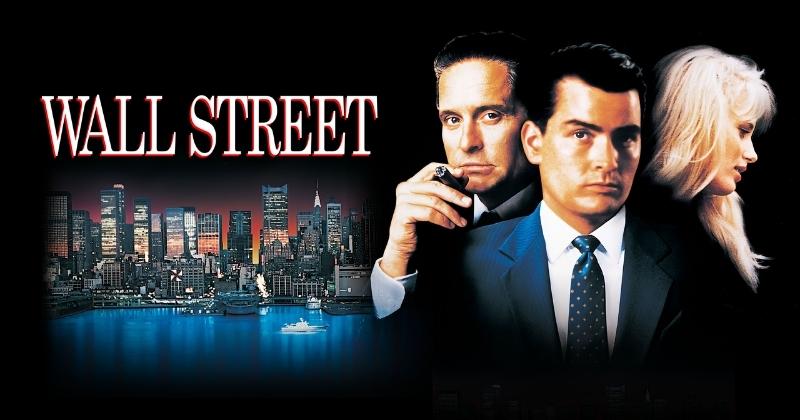
Wall Street (1987) by Oliver Stone
This film features an Academy Award-winning performance by Michael Douglas, centering on Bud Fox (Charlie Sheen), an ambitious young stockbroker who financed his university education through hard work and the support of his father (Martin Sheen), a mechanic and union leader. Bud aspires to work alongside his idol, Gordon Gekko (Michael Douglas), a ruthless investor who quickly amassed significant wealth on the stock market. Through relentless determination, Bud gains entry into Gekko’s inner circle, where he assists with various investments and business ventures.
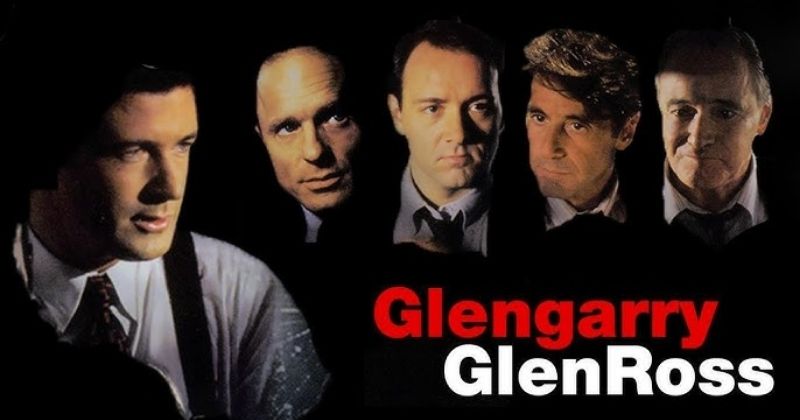
Glengarry Glen Ross (1992) by James Foley
Adapted from David Mamet’s acclaimed play, this film follows a group of struggling real estate agents whose ethics have been compromised by years of pressure from a ruthless employer. It explores the greed and questionable tactics often seen in financial product sales while highlighting the relentless demands placed on sales staff to meet targets. The stellar cast delivers remarkable performances, but Alec Baldwin’s intense motivational speech stands out as the film’s most unforgettable moment, revealing both the admirable and harsh realities of life in a high-pressure financial environment.
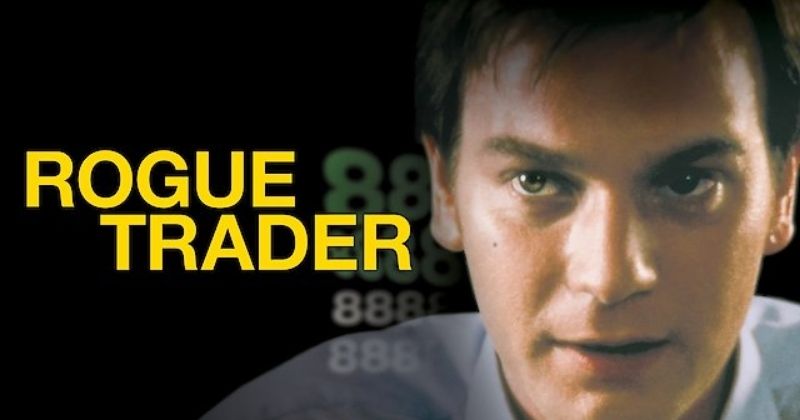
Rogue Trader (1999) by James Dearden
This film dramatizes the real-life events surrounding Nick Leeson, a trader responsible for the collapse of Barings Bank, the world’s second-oldest merchant bank. Initially a standout performer on the Singapore trading floor, Leeson’s fortunes quickly declined as he concealed substantial losses from his superiors using secret accounts. His actions culminated in a catastrophic short straddle position on the Nikkei, which was exacerbated by an unexpected market shift. While the film captivates audiences, it is Leeson’s story that highlights the critical importance of risk management and financial oversight.
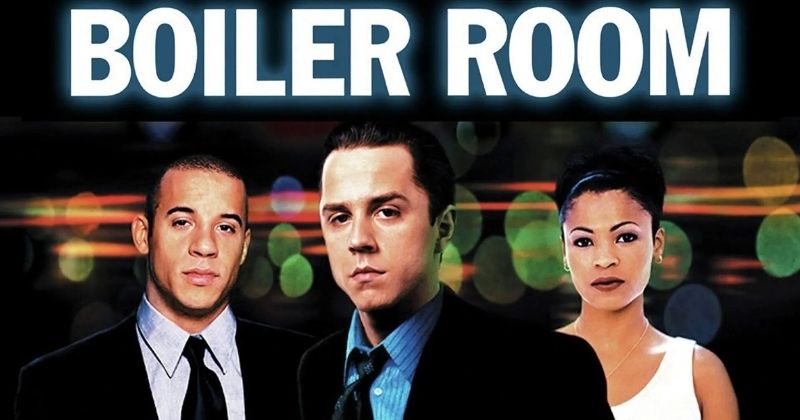
Boiler Room (2000) by Ben Younger
Seth Davis (Giovanni Ribisi) operates an illegal casino from his home, seeking his family’s approval amid their disapproval of his current lifestyle. When he is offered a position at the brokerage firm J.T. Marlin, he views it as an opportunity for redemption. However, he soon discovers that J.T. Marlin is a fraudulent operation that exploits investors. Realizing that the firm’s founders plan to distance themselves and destroy evidence of their wrongdoing, Seth teams up with his father, a federal judge, to expose the firm using an IPO scam, hoping to recover funds for the defrauded investors. The plot bears similarities to the life of Jordan Belfort from The Wolf of Wall Street, though writer-director Ben Younger denies any direct connection.

Inside Job (2010) by Charles Ferguson
This documentary is a pivotal entry in the business and finance genre, winning the Oscar for Best Documentary in 2011. It provides a comprehensive analysis of the 2008 financial crisis, meticulously exploring the widespread corruption within the U.S. financial services industry. The film not only reveals the depth of the crisis but also examines its far-reaching consequences and the ripple effects felt across global markets.
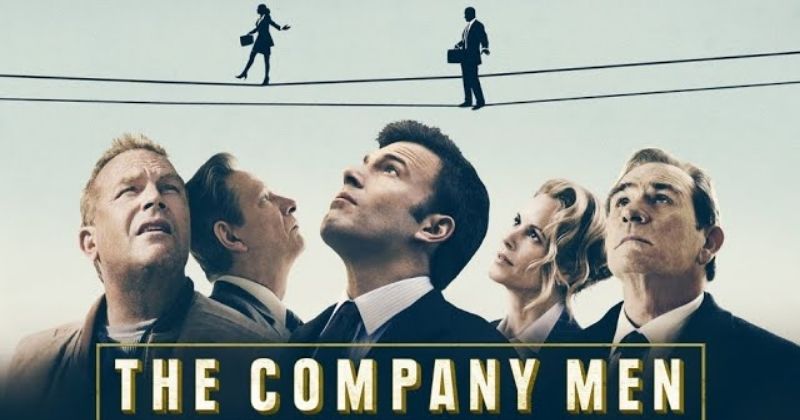
The Company Men (2010) by John Wells
Bobby Walker (Ben Affleck) appears to have it all: a lucrative job, a supportive family, and his dream car parked in the garage. However, his life takes a dramatic turn when his company implements layoffs, leaving him and his colleagues, Phil Woodward (Chris Cooper) and Gene McClary (Tommy Lee Jones), without jobs. This upheaval compels the three men to reevaluate their roles as fathers and husbands, prompting them to confront the reality of their new circumstances.
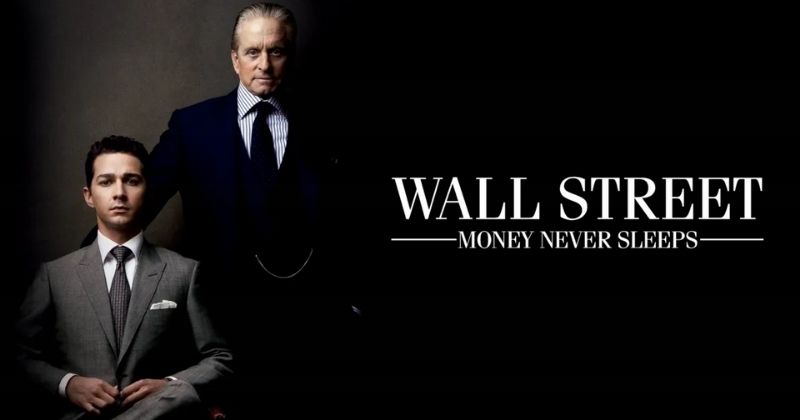
Wall Street: Money Never Sleeps (2010) by Oliver Stone
This sequel continues the story from the original film, focusing on Gordon Gekko (Michael Douglas), who has spent 20 years in prison and is now attempting to reintegrate into society. Gekko seeks to reconnect with his daughter, played by Carey Mulligan, through her ambitious trading partner and fiancé (Shia LaBeouf). However, as the narrative unfolds, it becomes clear that Gekko’s intentions are not as straightforward as they appear, adding layers of complexity to his character and motivations.
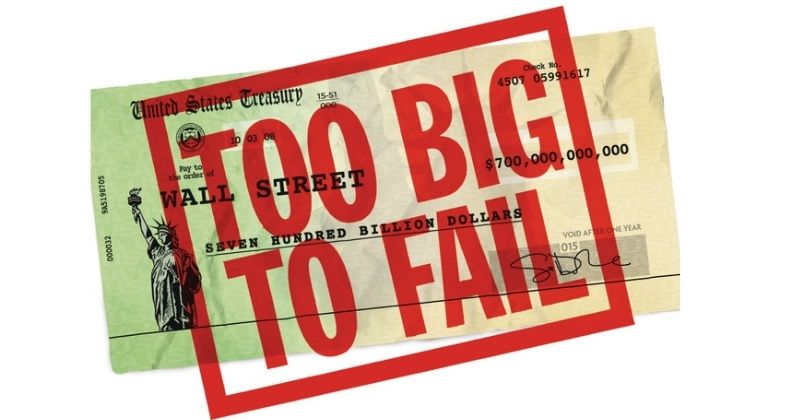
Too Big to Fail (2011) by Curtis Hanson
This television film explores the events surrounding the 2008 economic crisis, adapted from Andrew Ross Sorkin’s best-selling book. It vividly depicts the actions of key figures during this tumultuous period, with a focus on Henry Paulson (William Hurt), the Secretary of the Treasury. The film highlights the intricate relationship between Wall Street and the government, shedding light on the critical decisions made in the face of impending disaster.
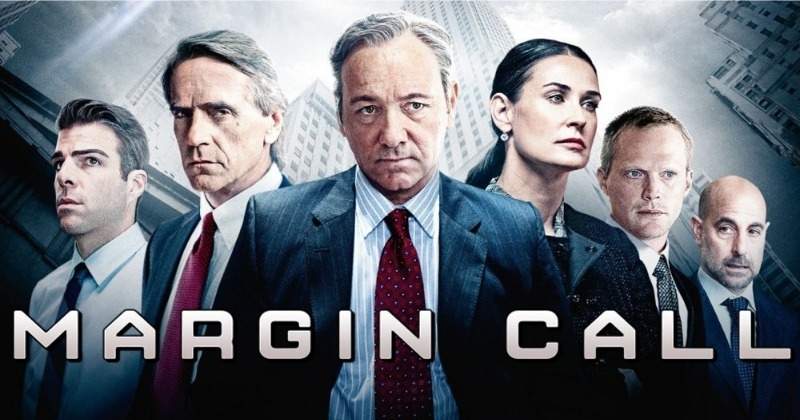
Margin Call (2011) by J.C. Chandor
This film centers on eight employees at a major investment bank during the critical 24 hours leading up to the 2008 financial crisis. The narrative kicks off when junior analyst Peter Sullivan, played by Zachary Quinto, uncovers alarming data indicating that the firm is on the verge of collapse. This discovery triggers a series of complex financial decisions and ethical dilemmas that impact everyone involved. As the employees confront the imminent disaster, they must navigate the repercussions of their choices while facing the harsh reality of the impending economic fallout.
In Margin Call and The Big Short, you witness the dramatic consequences of risky financial behavior. Yet, on a personal level, financial mishaps such as late payments can have a lasting impact on your credit rating. Managing debt responsibly is essential, whether you’re operating at Wall Street’s scale or dealing with everyday expenses.
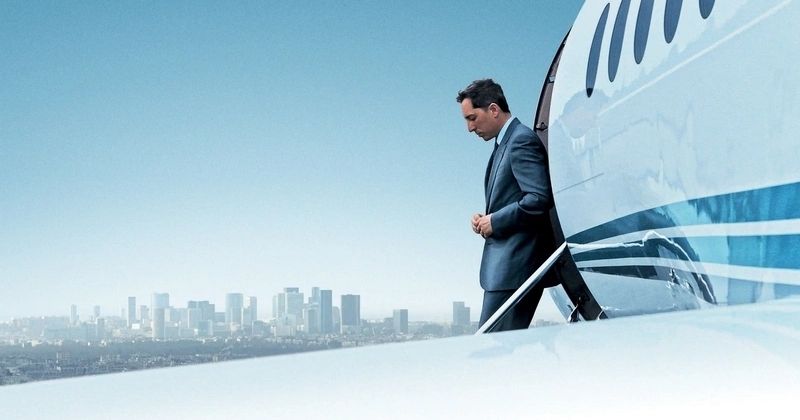
Capital (2012) by Costa-Gavras
Directed by Costa-Gavras, this French film follows Marc Tourneuil, played by Gad Elmaleh, a resourceful bank employee caught in the midst of a significant economic crisis. Marc’s unexpected journey into the cutthroat world of high finance is marked by ambition and astute industry knowledge, propelling him toward rapid success. As he maneuvers through the complexities of the banking sector, he ultimately rises to become one of the most powerful and influential figures in the country.
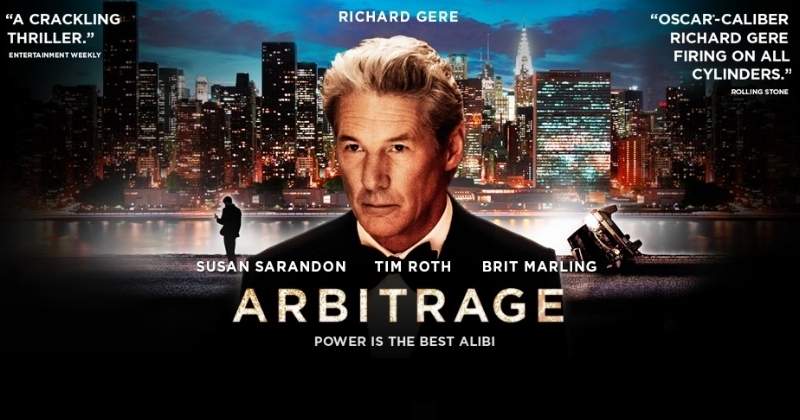
Arbitrage (2012) by Nicholas Jarecki
Arbitrage stands out in the business and finance genre, featuring performances by Richard Gere, Susan Sarandon, and Tim Roth. The film revolves around Robert Miller, a wealthy tycoon who appears to have it all—professional success and a supportive family. His wife and daughter are often by his side, presenting an image of a man who has mastered every aspect of life.
However, the reality is far less glamorous. Miller is in serious trouble, frantically trying to sell his business to a major bank before his fraudulent activities come to light. His deceit extends beyond the corporate realm; he is also concealing an affair with a French art dealer from his family. Just when it seems he might evade the consequences, an unexpected blunder forces him to confront a harsh truth.
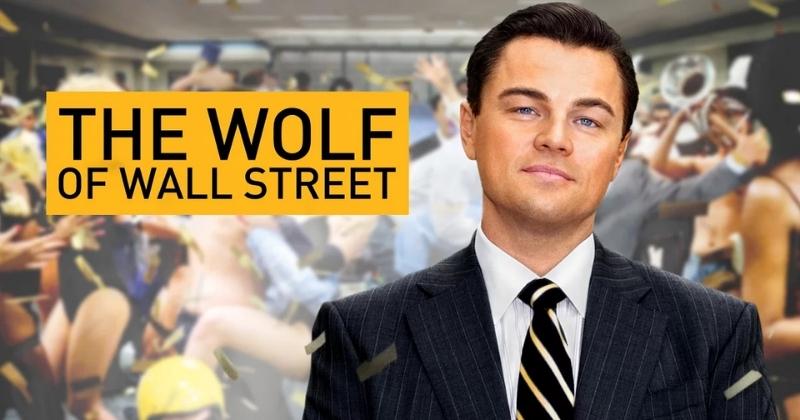
The Wolf of Wall Street (2013) by Martin Scorsese
This film, starring Leonardo DiCaprio and nominated for five Oscars, is based on the true story of New York stockbroker Jordan Belfort. In the mid-1980s, Belfort began his career at a brokerage firm, quickly learning that ambition and high commissions were valued more than client success. His extraordinary rise in the industry earned him the moniker “The Wolf of Wall Street,” which serves as the title for this iconic film, capturing the highs and lows of the financial world.
If you’re captivated by how characters like Jordan Belfort in The Wolf of Wall Street or Gordon Gekko in Wall Street manipulate financial markets, it’s crucial to understand the foundation of any financial move: building financial credibility. Understanding what makes a good credit score is the first step in your journey to smarter financial decisions, whether you’re an entrepreneur or a regular investor.
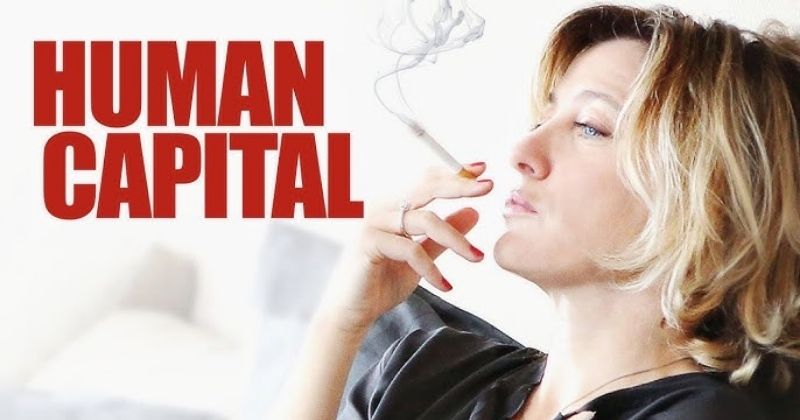
Human Capital (2013) by Paolo Virzi
This critically acclaimed Italian film unfolds on Christmas Eve when a luxury car strikes a cyclist on the roadside, igniting a clash between social classes. The accident significantly alters the lives of two families: the affluent Giovanni Bernaschi, a financial speculator managing his own investment fund, and Dino Ossola, an ambitious real estate agent willing to risk everything as his business teeters on the brink of collapse.
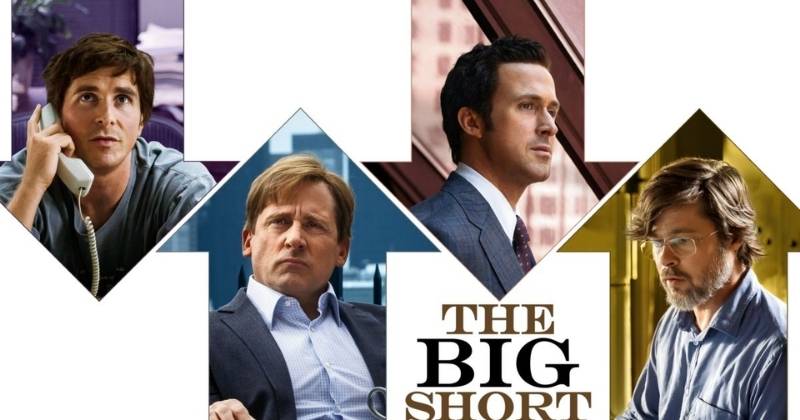
The Big Short (2015) by Adam McKay
Winning the Oscar for Best Adapted Screenplay, this film is set against the backdrop of the 2008 financial crisis. With a star-studded cast that includes Christian Bale, Steve Carell, Ryan Gosling, and Brad Pitt, it tells the story of four individuals who recognise that banks, the media, and government officials are overlooking the signs of an impending economic meltdown. They develop a high-risk investment strategy known as the “big bet,” but their journey plunges them into the murky depths of the financial world, challenging their beliefs and those of the people around them.
Conclusion
These films on finance and economics offer diverse perspectives on the world of money, presenting both educational and cautionary narratives. From the high-stakes choices of investment bankers to the ethical dilemmas confronted by traders, they delve into the intricacies of financial markets, the repercussions of greed, and the effects of economic crises on individuals and society. By dramatizing real events alongside fictional stories rooted in financial realities, these movies provide viewers with valuable insights into the challenges and responsibilities that accompany the financial industry, making them not only entertaining but also enlightening.
Frequently Asked Questions
Key finance movies include Wall Street (1987), Rogue Trader (1999), The Big Short (2015), Margin Call (2011), and Inside Job (2010). Each of these films provides unique insights into various aspects of the financial world, including trading, risk management, market crashes, and ethical challenges within the industry.
Films like Inside Job, The Big Short, and Margin Call portray the events leading up to the 2008 financial crisis. They investigate the factors that contributed to the collapse, such as risky investment practices, inadequate oversight, and widespread corruption. These films simplify complex financial concepts, illustrating the crisis’s impact on both global markets and individual lives.
Rogue Trader underscores the importance of risk management and financial oversight by recounting how a single trader caused the downfall of Barings Bank. Wall Street examines the moral and ethical dilemmas in the finance industry, exploring how greed and ambition can influence decision-making and affect countless lives.
Many of these films are based on true events or inspired by real-life situations. Rogue Trader, The Wolf of Wall Street, Inside Job, and The Big Short depict actual financial crises, corporate scandals, and the individuals involved. While some movies, such as Wall Street, are fictional, they often draw on real industry practices.
Finance movies make complex topics like market behaviour, financial crises, and ethical challenges in the industry more accessible. By telling engaging stories, they offer viewers practical insights into how financial markets operate, the potential risks involved, and the broader societal implications of economic decisions.
Fast, uncomplicated, and trustworthy loan comparisons
At Arcadia Finance, you can compare loan offers from multiple lenders with no obligation and free of charge. Get a clear overview of your options and choose the best deal for you.
Fill out our form today to easily compare interest rates from 19 banks and find the right loan for you.


